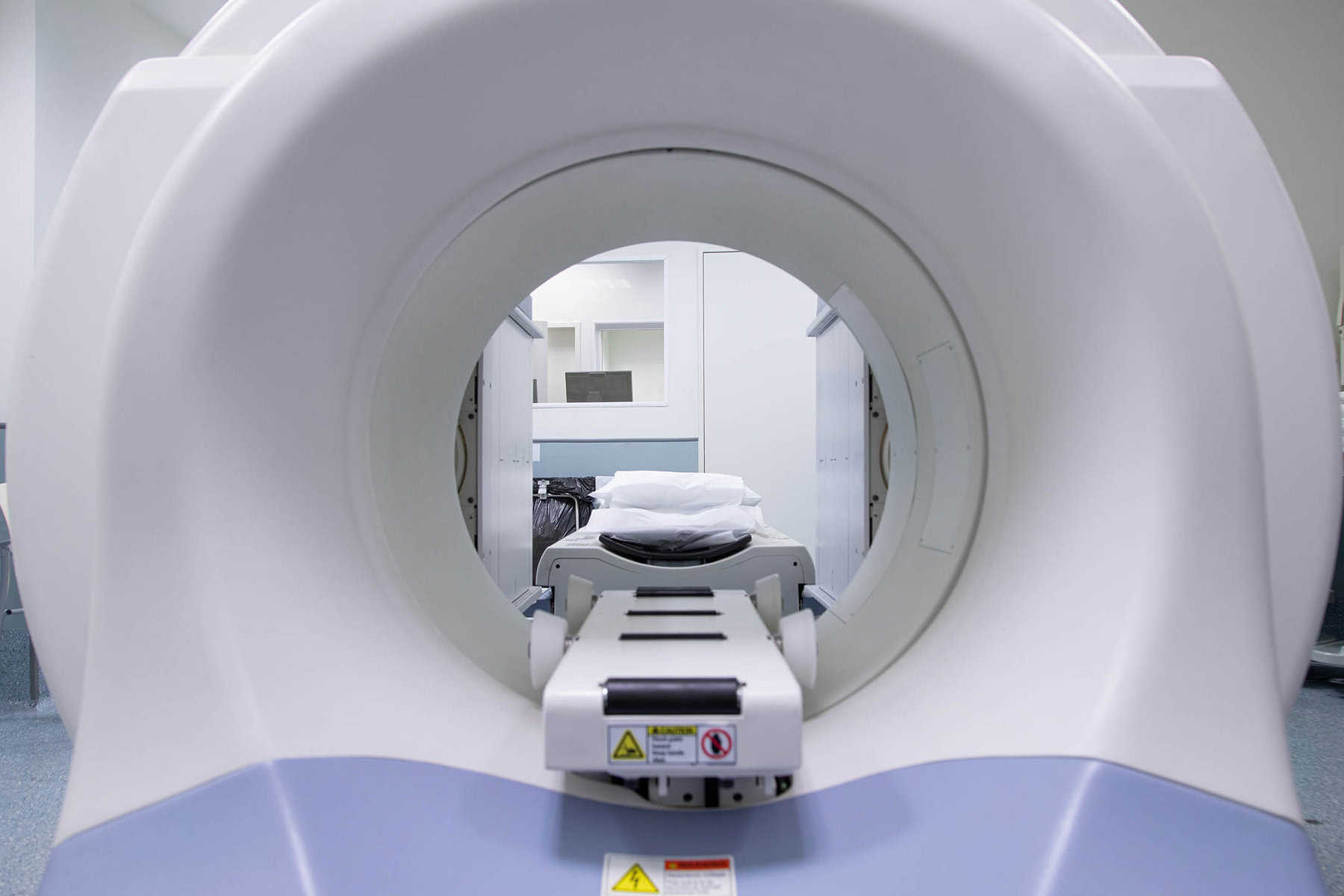Expert Diagnosis and Treatment for Haematuria
Concerned about blood in your urine? At The Forbury Clinic, we offer expert diagnosis and treatment for haematuria. Submit an enquiry for a consultation and get the care you need today.

Overview of Haematuria
Haematuria, or the presence of blood in the urine, can be alarming and is a symptom that should never be ignored. It can indicate a variety of underlying conditions, from urinary tract infections and kidney stones to more serious issues like bladder or kidney cancer. Addressing haematuria promptly is crucial for identifying the underlying cause and preventing potential complications. At The Forbury Clinic, our experienced specialists use state-of-the-art diagnostic tools to accurately determine the cause of haematuria and provide comprehensive, personalised treatment plans. Our goal is to ensure you receive the best possible care in a compassionate and supportive environment, helping you achieve optimal health and peace of mind.


What is Haematuria?
Haematuria is the medical term for the presence of blood in the urine. It can be visible to the naked eye, known as gross haematuria, where the urine appears pink, red, or cola-colored due to the presence of red blood cells. It can also be microscopic haematuria, where the blood is not visible but can be detected under a microscope or through a urine test. Haematuria itself is not a disease but a symptom of various underlying conditions affecting the kidneys, bladder, ureters, or urethra. Common symptoms accompanying haematuria can include pain or burning during urination, frequent urination, and abdominal or back pain. Identifying the cause of haematuria is essential for effective treatment and prevention of more serious health issues.
Causes and Risk Factors
Haematuria can be caused by a wide range of conditions, varying from benign to serious. Understanding these causes and risk factors is crucial for early diagnosis and treatment:
Urinary Tract Infections (UTIs):
Infections in the bladder or urethra can cause irritation and lead to the presence of blood in the urine.
Kidney Stones:
Stones can cause bleeding as they pass through the urinary tract.
Bladder or Kidney Infections:
Infections in the bladder or kidneys can cause haematuria.
Enlarged Prostate:
In men, an enlarged prostate can press on the urethra, causing bleeding.
Kidney Disease:
Various kidney conditions, including glomerulonephritis, can cause haematuria.
Cancer:
Bladder, kidney, or prostate cancer can lead to blood in the urine.
Medications:
Certain medications, such as blood thinners, can cause haematuria.
Vigorous Exercise:
Intense physical activity can sometimes cause temporary haematuria.
Inherited Disorders:
Genetic conditions like sickle cell anaemia and Alport syndrome can cause blood in the urine.
Causes
Age:
Older adults are more likely to develop conditions that cause haematuria.
Family History:
A family history of kidney disease or urinary conditions can increase the risk.
Gender:
Men are at higher risk of developing haematuria, particularly due to prostate issues.
Certain Medications:
Long-term use of certain medications can increase the likelihood of haematuria.
Recent Infections:
Having had a recent bacterial or viral infection can trigger haematuria.
Risk Factors
Recognising these causes and risk factors helps in the timely diagnosis and effective management of haematuria, ensuring better health outcomes.
Diagnosis
Diagnosing haematuria at The Forbury Clinic involves a thorough evaluation to determine the underlying cause of blood in the urine. Our specialists use a combination of advanced diagnostic tools and personalised assessments, including:
- Medical History and Physical Examination: A detailed discussion of your symptoms, medical history, and any medications you are taking, followed by a physical examination to check for signs of underlying conditions.
- Urine Tests: Urinalysis to detect the presence of red blood cells, bacteria, or other substances in the urine. Urine culture may also be performed to identify any infections.
- Blood Tests: To assess kidney function and check for other underlying health issues that could be causing haematuria.
- Imaging Tests:
- Ultrasound: A non-invasive test that uses sound waves to create images of the kidneys and bladder, helping to detect abnormalities such as stones or tumors.
- CT Scan: Provides detailed images of the urinary tract to identify stones, tumors, or other issues.
- MRI: May be used in certain cases to get a more detailed view of the urinary tract.
- Cystoscopy: A procedure in which a thin tube with a camera is inserted into the bladder through the urethra to visually inspect the bladder and urethra for abnormalities.
These diagnostic methods allow our team to accurately identify the cause of haematuria and develop a tailored treatment plan.

Treatment of Haematuria
At The Forbury Clinic, we offer a comprehensive range of treatment options for haematuria, tailored to the underlying cause and individual needs of each patient. Our approach combines the latest medical advancements with compassionate, patient-centred care:
Treating Underlying Conditions:
Addressing the root cause of haematuria, such as infections, stones, or prostate issues, to eliminate the source of bleeding.
- Antibiotics: Prescribed for urinary tract infections or other bacterial infections causing haematuria.
- Medication Adjustment: Reviewing and adjusting any medications that may be causing haematuria.
Lifestyle Modifications:
Recommendations may include increased hydration, dietary changes, and avoiding strenuous exercise to reduce the risk of haematuria.
Monitoring and Follow-Up:
Regular follow-up appointments to monitor the condition and ensure that the treatment is effective.
Minimally Invasive Procedures:
Shock Wave Lithotripsy:
Uses sound waves to break up kidney or bladder stones into smaller pieces that can be passed more easily.
Ureteroscopy:
A thin scope is used to locate and remove stones or treat other abnormalities in the urinary tract.
Surgical Interventions:
For more severe cases or when other treatments are ineffective, surgery may be required to remove tumours, repair structural issues, or address other serious underlying conditions.
Our multidisciplinary team ensures that each patient receives the most appropriate and effective treatment, enhancing their quality of life and managing their condition with precision and care.
Managing Haematuria
Effective management of haematuria involves a combination of treating the underlying cause and making lifestyle adjustments to prevent recurrence. At The Forbury Clinic, we provide comprehensive care and guidance to help manage this condition:
Increased Hydration:
Drinking plenty of water helps to dilute the urine and prevent the formation of kidney stones and infections.
Dietary Changes:
Depending on the underlying cause, dietary adjustments may be recommended, such as reducing salt intake for kidney stones or avoiding foods that can irritate the bladder.
Medication Compliance:
Ensuring that any prescribed medications for underlying conditions are taken as directed to prevent recurrence of haematuria.
Regular Monitoring:
Keeping regular follow-up appointments to monitor the condition and make any necessary adjustments to the treatment plan.
Avoiding Strenuous Exercise:
If haematuria is linked to intense physical activity, moderating exercise routines can help manage the condition.
These management strategies aim to complement medical treatments and provide a holistic approach to controlling symptoms and preventing future occurrences of haematuria.
Complications
While haematuria can often be managed effectively, untreated or persistent haematuria can lead to several complications that may affect overall health:
- Urinary Tract Infections (UTIs): Frequent or untreated haematuria can lead to recurrent urinary tract infections.
- Kidney Damage: Persistent haematuria can indicate underlying kidney issues, which, if left untreated, can lead to chronic kidney disease or kidney failure.
- Anaemia: Severe or chronic blood loss through urine can result in anaemia, leading to fatigue and weakness.
- Bladder or Kidney Cancer: In some cases, haematuria can be a symptom of serious conditions like bladder or kidney cancer, which require prompt diagnosis and treatment.
Prognosis
The prognosis for haematuria largely depends on the underlying cause. When identified and treated promptly, the outlook is generally good. Most cases of haematuria, especially those caused by infections or kidney stones, can be resolved with appropriate treatment. However, conditions such as cancer or chronic kidney disease require ongoing management and monitoring. At The Forbury Clinic, we are dedicated to guiding our patients through their treatment journey with comprehensive care and support, ensuring the best possible outcomes and a higher quality of life.


Why Choose The Forbury Clinic?
Choosing The Forbury Clinic for your haematuria treatment means opting for excellence in medical care. We combine expert medical staff, cutting-edge technology, and a compassionate, patient-centred approach to ensure the highest quality of care. Our team of specialists is highly experienced in diagnosing and treating haematuria, offering personalised treatment plans tailored to your specific needs. We utilise the latest diagnostic tools and minimally invasive techniques to provide effective and efficient treatment. At The Forbury Clinic, we are committed to enhancing your health and well-being in a welcoming and discreet environment, ensuring you receive the best possible care.